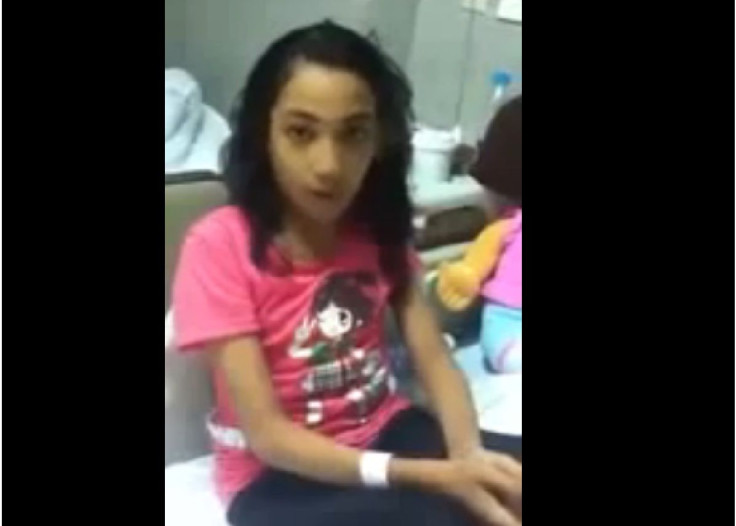12-Year-Old Girl’s HIV-Tainted Blood Transfusion Prompts Outrage in Saudi Arabia

The case of Reham al-Hakami, a 12-year-old girl who was mistakenly given a transfusion of HIV-positive blood, may have caused a watershed moment in Saudi Arabian society.
Reham, who suffers from sickle cell anemia, received the transfusion on Feb. 12 at the hospital in her village of Jazan. Hours later, medical staff notified her family that the blood was HIV-positive.
She was then airlifted to the King Faisal Specialist Hospital in Riyadh, the Saudi capital. It is still unclear whether Reham has tested positive for HIV. The government-backed Human Rights Commission is investigating the case, which is believed to be the result of negligence.
The ultraconservative Islamic kingdom, notoriously resistant to the open discussion of its AIDS crisis, has erupted in outrage.
Open criticism of government officials is rare, but the potentially life-threatening error has sparked furious calls for its health minister, Abdullah al-Rabiah, to resign, and prompted the government to shuffle top positions. Seven Health Ministry officials have been fired and some were fined, including the coordinator of the region's AIDS program.
The Saudi Ministry of Health issued a statement in response to widespread online criticism and media discussion, claiming responsibility and expressing remorse, but neglecting any actual mention of HIV.
Saudi Arabian law provides free medical care to all citizens infected with HIV and AIDS, and purports to protect individuals' privacy regarding the mode of infection. However, strong social taboos and the stigma attached to the sexual transmission of HIV make adequate prevention and treatment difficult.
There are several government-designated hospitals that provide HIV and AIDS treatment, but hospitals and schools are often reluctant to distribute government information about the disease.
According to a 2006 NY Times report, Saudi Arabia has started to open up about its growing AIDS problem after years of keeping silent. In June of that year, the Ministry of Health admitted that 10,000 people in the kingdom were HIV-positive, though doctors suspected that the true numbers could be as high as 80,000.
In a country with strong taboos against extramarital sex, such activity must be hidden, and is inevitably riskier without a wide public understanding of condom use and safe sex. As it was in the early 1980s United States, HIV is commonly understood to mainly affect men who have sex with men and intravenous drug users, easily stigmatized populations that are moralistically viewed as responsible for, or even deserving of, their illness.
While a child like Reham al-Hakami is an obvious target of sympathy for Saudis, adults who contract HIV face enormous challenges. A middle-aged gay Saudi man with HIV spoke with the New York Times.
"You live in constant fear of being found out and attacked. I'm sure a lot of people would think I deserve what I have if they knew about it."
The al-Hakami case mirrors a watershed moment for public awareness of HIV in the United States, when, in 1984, 14-year-old hemophiliac Ryan White was diagnosed with HIV after a tainted blood transfusion. The knowledge that HIV could affect children caused a wave of AIDS coverage in the news media, leading to increased sympathy for victims and an understanding of the disease as a national public health crisis.
International public health advocates hope that this episode leads to greater awareness of HIV/AIDS in Saudi Arabia, and eventually erodes the stigma against its victims.
Meanwhile, the al-Hakami family is still in shock over what happened. Ibrahim al-Hakimi, the family's lawyer, said the family plans to sue the Health Ministry "starting from the most senior official and including all employees involved in this medical mistake."
Reham al-Hakimi can be seen in a widely-circulated six-second video, saying in Arabic "I need you to stand by me and pray for me."



























